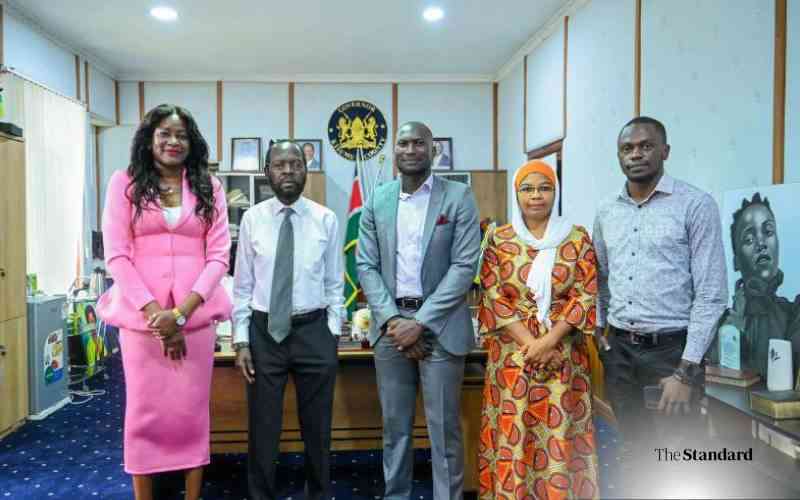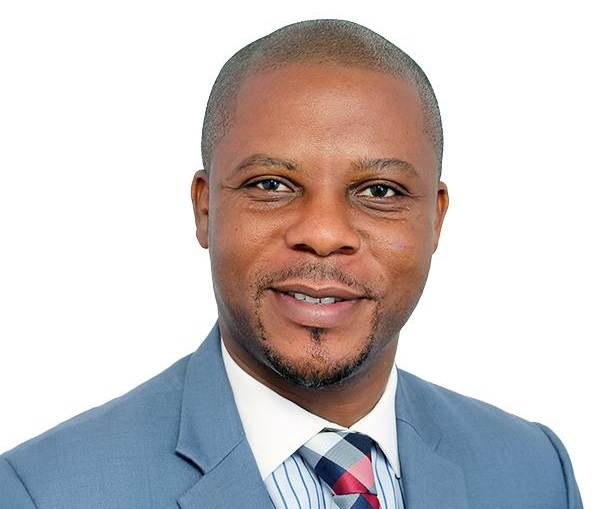Flawed process, false disclosure rock courses, varsities' accreditations
The integrity of Nigeria’s university accreditation process has again come under intense scrutiny as allegations of corruption and sharp practices involving the National Universities Commission (NUC) continue to surface.
Stakeholders, including lawmakers, academics, and parents, are raising concerns that bribery and manipulation are undermining the credibility of academic programmes across the country.
Multiple sources have alleged that some universities, desperate to secure accreditation for their courses, resort to unethical conduct just to scale the accreditation hurdle.
These include hiring qualified and unqualified lecturers for just a day, temporarily assigning them offices with names on doors, and borrowing equipment solely for the duration of the NUC’s scheduled visits.
Once the accreditation team departs, these arrangements are dismantled, leaving students with inadequate instruction and facilities. Stakeholders have questioned the integrity of accreditation exercises, alleging that the process has been compromised.
They accused the commission of aiding and abetting corruption in its accreditation exercise, alleging that the team receives bribes, which undermines the credibility of the exercise.
Recently, Olatunbosun Taofeek, a lecturer and Doctor of Literature at Mountain Top University (MTU), made damning allegations against the NUC and universities nationwide, urging the government to intervene in the rescue of higher education.
Among his allegations is that NUC gives full accreditations to universities “without lecturers”, with some departments “graduating students with two or three lecturers”. But NUC denied all the allegations, describing the claims as unsubstantiated.
According to reports, the scoring used by the commission in accrediting universities was based on 32 per cent staffing capacity, 23 per cent academic content, 25 per cent physical facilities, 12 per cent library presence, five per cent funding, and three per cent employer rating.
To attain full accreditation status, the Executive Secretary of the Commission, Prof. Abdullahi Ribadu, said a programme must score a minimum of 70 per cent in each of the four core areas, and an overall score of 70 per cent or above in its entirety.
Ribadu, however, revealed that earning full accreditation status “does not imply that a programme has all the necessary resources in perfect measure”, but is deemed to be an “acceptable standard of performance”, with adequate room for further improvements.
The NUC, in its May 2024 bulletin, confirmed that Nigeria’s over 200 universities (62 federal, 63 state, and 149 private) have only 100,000 academic staff servicing 2.1 million students—a ratio of 1:21, far above the global benchmark of 1:10.
In some institutions, lecturers manage up to 1,500 students per course, severely diluting education quality. In some cases, individual lecturers manage between 1,200 and 1,500 students, which far exceeds the NUC’s recommended lecturer-to-student ratio of 1:30.
South Africa has a total of 26 public universities, which include traditional universities, universities of technology, and comprehensive universities widely recognised for their academic standards and research output, consistently achieving high rankings in global university league tables.
On the other hand, Nigeria has over 200 universities, but few of them are highly ranked globally. According to the Times Higher Education (THE) World University Rankings 2025, only 21 Nigerian universities are featured, and none are in the global top 500. The highest-ranked Nigerian university is Covenant University, placed in the 801–1000 bracket globally.
Other notable institutions, such as the University of Nigeria, Nsukka (UNN), Obafemi Awolowo University (OAU) and the University of Benin (UNIBEN) are ranked 1201–1500 or lower globally.
Recently, the Chief of Staff to the President, Femi Gbajabiamila, said there were many bills seeking to establish new universities in the National Assembly as “every legislator is desirous of having a university in his constituency”.
According to him, the proliferation of universities is inevitable when constituents start mounting pressure on their representatives to facilitate universities in their constituencies. “We end up sacrificing qualitative education to quantitative education,” Gbajabiamila noted.
A 2019/2020 study focusing on universities in the Niger Delta region, showed that the distribution of academic staff ranks deviated from NUC’s recommended structure.
The approved NUC benchmark for academic staff composition is roughly 20 per cent professors, 35 per cent senior lecturers, and 45 per cent other lecturer grades.
However, the actual distribution was closer to 21 per cent professors, 20 per cent senior lecturers, and 59 per cent other lecturers across the sampled universities.
“The gross shortage of lecturers is a national emergency,” the NUC stated, urging exemptions from federal employment embargoes to allow universities recruit more staff.
A 2022 NUC audit found that many universities operate with just 40 to 60 per cent of their required academic staff due to brain drain and underfunding.
Stakeholders accuse the NUC and universities of systemic corruption during accreditation exercises. A former Vice-Chancellor of Ebonyi State University (ESBU), Prof. Frank Idike, confirmed that some institutions “rent staff, buses, and other learning facilities to raise their status” during accreditation.
He described the practice as “very bad” and called for better detection methods by the NUC. “Years back, when I came to ESBU, the first accreditation of our academic programmes was very poor as we had about 11 programmes okayed, 25 interim accreditations, and six denied. Though I was not happy with the outcome, I accepted it because what we had was what we deserved, and what we got will guide us in the future.
“But in some universities, when the NUC team visits for accreditation, they rent staff, buses, and other learning facilities to raise their status. It is a very bad practice. They borrowed all these to gain full accreditation status in a misleading way. NUC should have a way of detecting this,” Idike said.
The fallout from these alleged malpractices is severe. Students have discovered, sometimes after years of study, that their courses were never properly accredited.
This has led to delays in graduation, inability to participate in the National Youth Service Corps (NYSC) scheme, and significant emotional distress.
For example, in 2018, medical students from the University of Abuja (UNIABUJA) finally became graduates after completing a six-year course, which spanned 12 years of study.
The reason was that the NUC and the Medical and Dental Council of Nigeria did not accredit the medical programme. In 2019, some students of Adekunle Ajasin University, Akungba-Akoko (AAUA), Ondo State, discovered after completing their course that it was not accredited by the NUC. As a result, they could not graduate or mobilise for the one-year mandatory NYSC until two years later.
Similarly, medical students at Ekiti State University, Ekiti State, were christened ‘Doctors at last’ during their convocation, having spent extended years in school due to the non-accreditation of the course.
The school’s College of Medicine, which began in 2009, was finally accredited in 2019, and the second set of admitted medical students spent 10 years completing the course.
In the same vein, as of September 2022, only 60 universities were granted full, interim, or failed accreditation for their undergraduate engineering programmes.
Three of the affected students from the University of Calabar (UNICAL) sued the institution for breach of trust, among other claims. The NUC is empowered by law to accredit all academic programmes run by universities in Nigeria for quality assurance purposes.
The guidelines for accreditation of programmes stipulate the Benchmark Minimum Academic Standards (B-MAS), which a course must meet to earn full accreditation.
The assessment criteria include the number of academics with PhDs, infrastructure to accommodate undergraduate and postgraduate courses, curriculum, quality and quantity of teaching staff, student admission, retention and graduation rates, standards of degree examinations, financial support, and employers’ ratings of graduates, among others.
The accreditation team also establishes the number of students that may be admitted per programme. Each programme that complies is entitled to full five-year accreditation, while those that fall short of compliance are awarded partial accreditation of three years only.
Programmes that do not meet the set standards are denied accreditation, and this is the aspect that most schools detest, hence, their resort to sharp practices. But it takes two to tango.
Multiple sources alleged that several universities are notable for borrowing academic staff and equipment during the commission’s scheduled visits. It was also alleged that some officials of the regulatory body, who are meant to expose these fraudulent acts, feign ignorance for obvious reasons.
Additionally, a former Deputy Vice Chancellor of Bayero University, Kano (BUK), Prof. Usman Mohammed, expressed concern over the alleged corrupt practices.
He said: “When I read of the allegations, I felt concerned and worried. Concerned in the sense that a system in which I had served for over 25 years in federal, state and private universities would have degenerated to that extent. Given the fact that corruption has become endemic in all spheres of Nigerian life, I still believe that, comparatively, there is sanity within the academic system.”
A Professor of Geography at the Federal University of Technology, Minna (FUTMINNA), Kingsley Edema, said the manipulation would negatively impact the system, as facilities that students need to excel in their courses, graduate, and function in society are not available.
But while dismissing the allegations as false, Ribadu clarified that NUC’s accreditation process is a rigorous evaluation system designed to ensure that universities uphold high academic benchmarks.
While he admitted that there is no perfect accreditation system anywhere in the world, Ribadu said the commission is poised to continually work on deepening and improving on the process.
Highlighting the stringent nature of the process, Ribadu explained that NUC’s programme accreditation evaluates individual academic programmes to ensure compliance with the Core Curriculum Minimum Academic Standards (CCMAS).
He noted further that the programme accreditation instrument used for the exercise has seven sections, four of which are considered core areas, which include academic matters, staffing, physical facilities, and library.
“Staffing, being a core component of accreditation, is a function of several factors. There are seven indicators in the evaluation of staffing, where the adequacy of a permanent staff on a programme is a major consideration. The NUC guidelines also permit a maximum of four part-time academic staff, which is equivalent to two permanent staff in respect of scoring per programme,” Ribadu explained. He added that during physical accreditation visits, evaluators ascertain the actual number of staff on ground.
“This process involves the physical inspection of their employment records and qualifications, and any attempt to present temporary staff or falsify records by any university will attract sanctions, as prescribed in the guidelines,” the NUC chief stated.
While allegations continue to fly over the head of NUC, Ribadu urged the universities to establish and operationalise their respective internal quality assurance mechanisms to enhance the culture of quality as a good practice.












